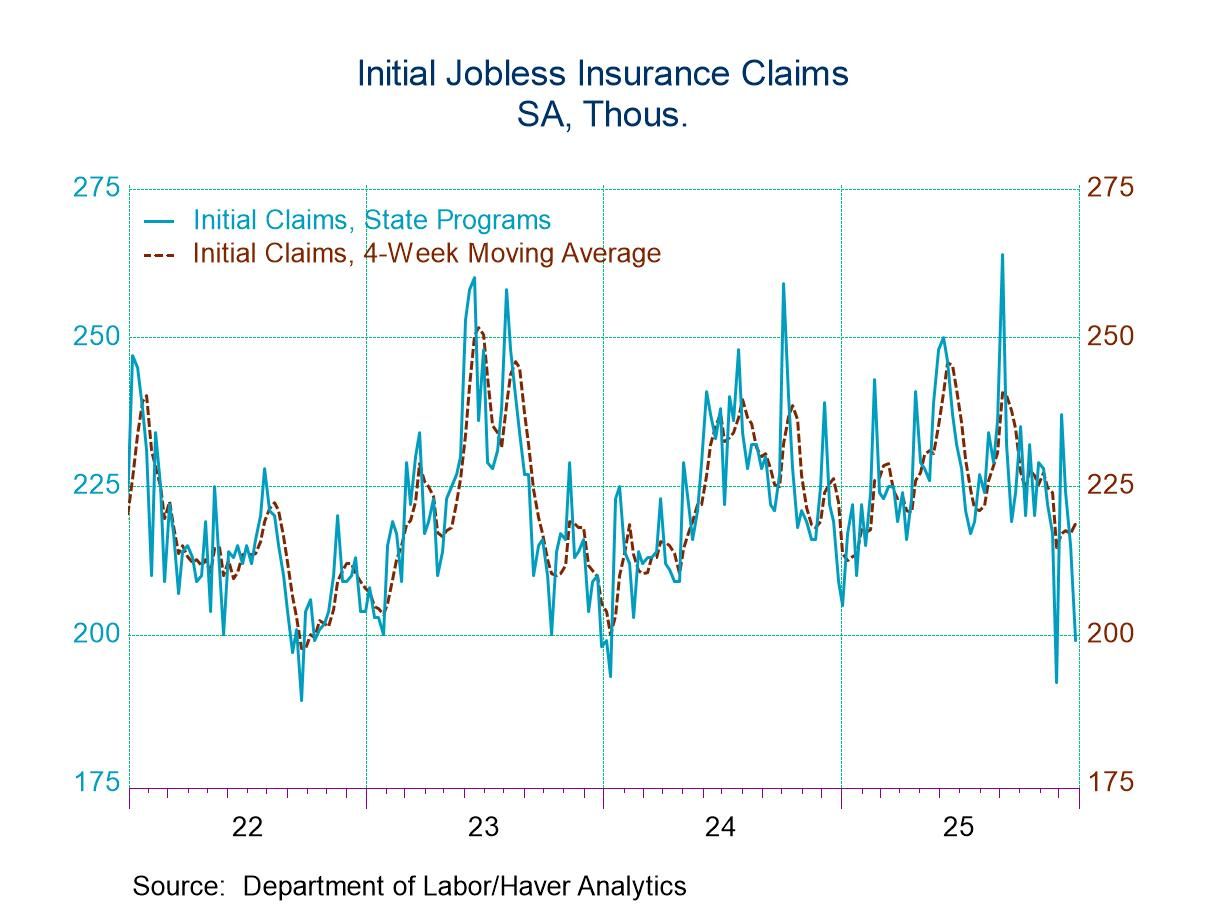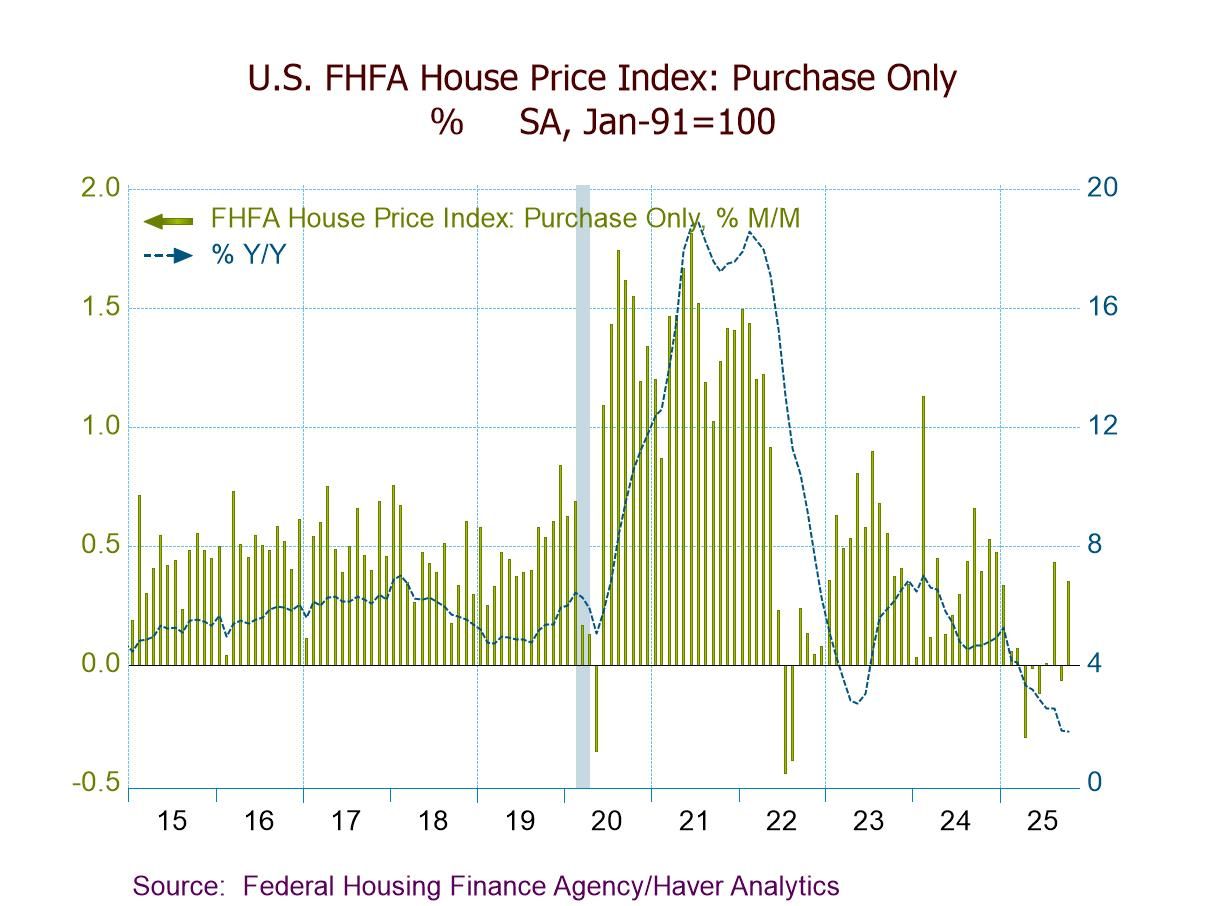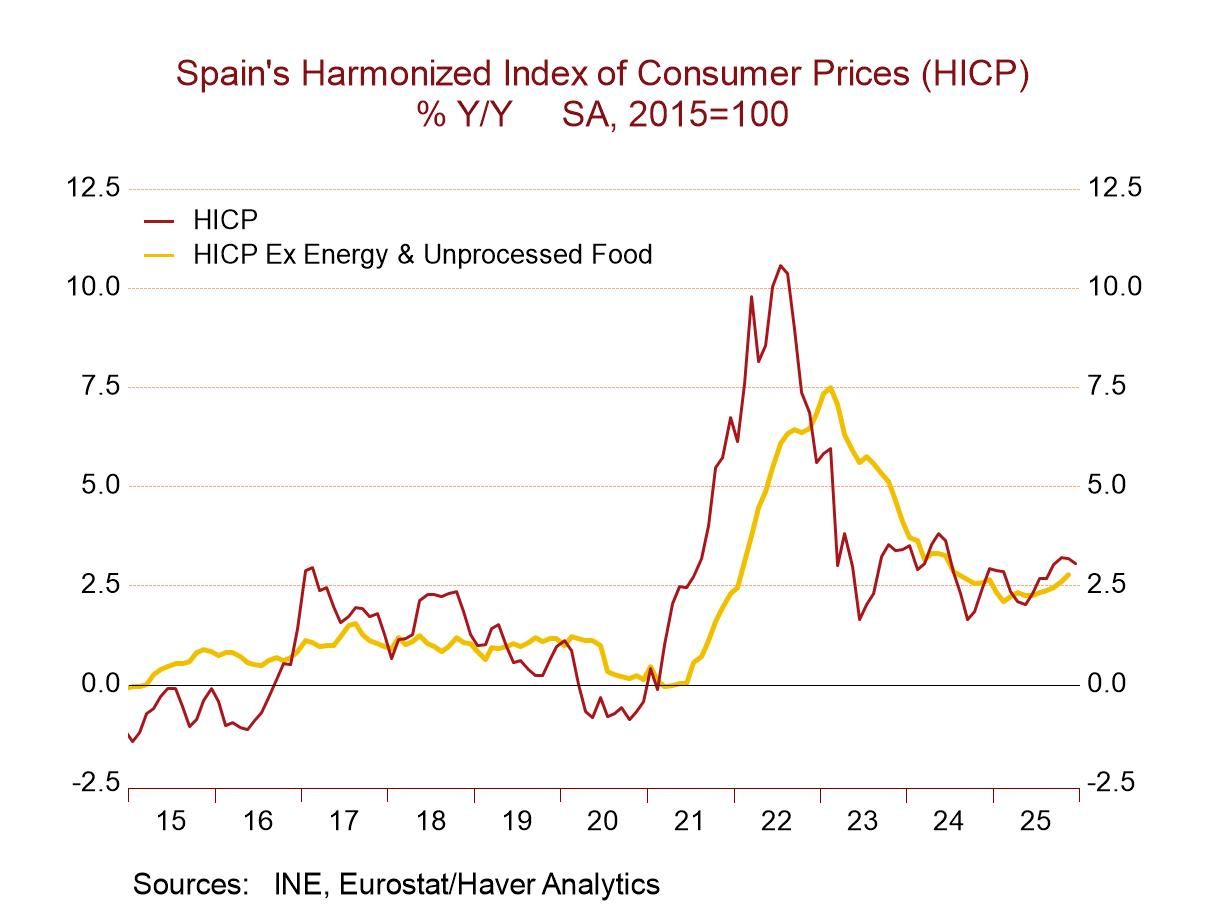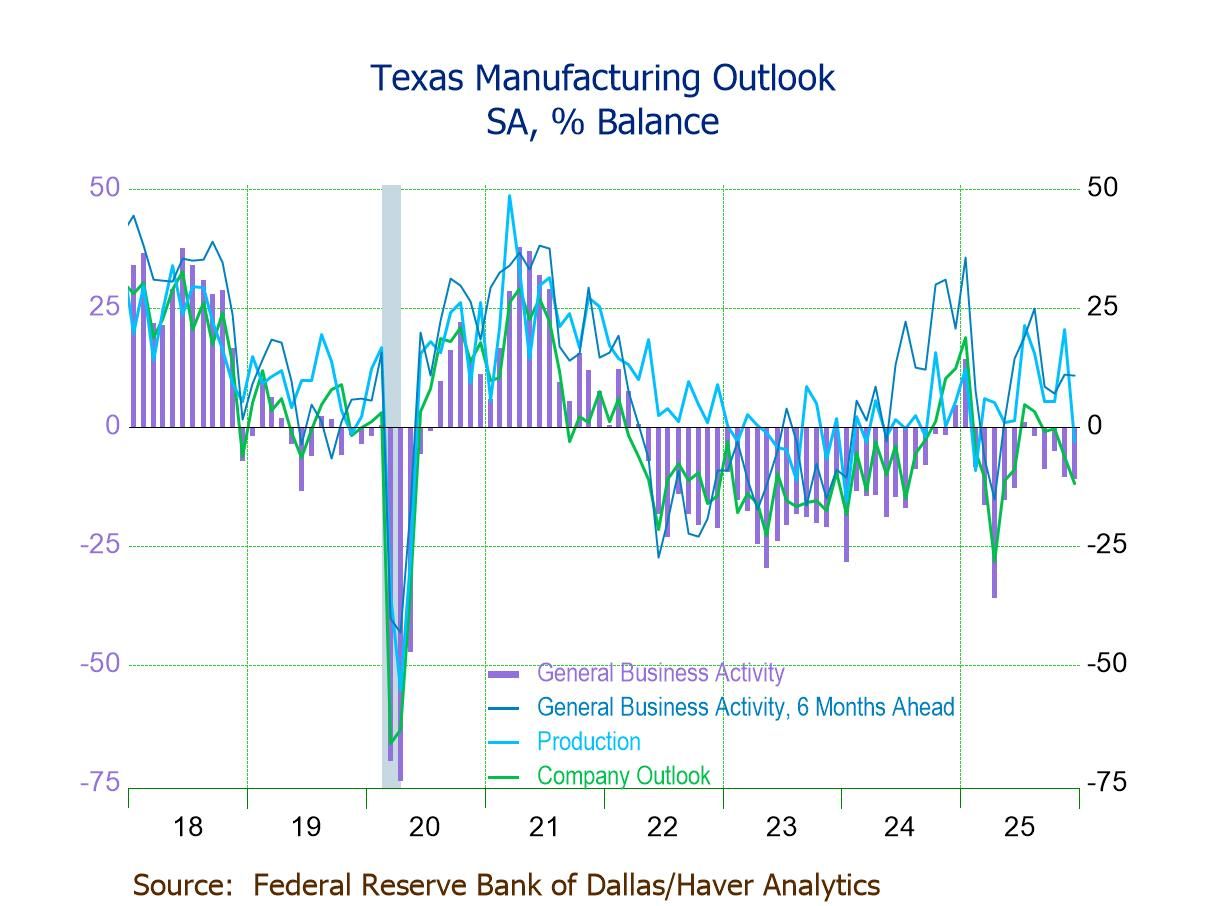 Global| Mar 27 2003
Global| Mar 27 2003Initial Claims for Jobless Insurance Fell
by:Tom Moeller
|in:Economy in Brief
Summary
Initial claims for unemployment insurance last week were lower than Consensus expectations for 420,000. Claims in the prior week were revised up slightly. The 5.9% w/w decline dropped claims to the lowest level since the first week of [...]
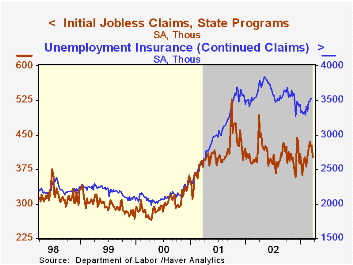
Initial claims for unemployment insurance last week were lower than Consensus expectations for 420,000. Claims in the prior week were revised up slightly. The 5.9% w/w decline dropped claims to the lowest level since the first week of February.
Despite the decline, initial claims remained above 400,000 for the sixth consecutive week.
The four-week moving average of initial claims fell slightly to 422,500, up 6.0% y/y. During the last ten years there has been a 72% correlation (inverse) between the level of initial claims and the three month growth in nonfarm payrolls.
Continuing claims for unemployment insurance fell 0.2% following a 1.4% jump the prior week which was revised down slightly.
The insured rate of unemployment was unchanged from the prior week's level at 2.8%.
| Unemployment Insurance (000s) | 3/22/03 | 3/15/03 | Y/Y | 2002 | 2001 | 2000 |
|---|---|---|---|---|---|---|
| Initial Claims | 402.0 | 427.0 | -2.9% | 405.0 | 405.8 | 299.8 |
| Continuing Claims | -- | 3,521 | -1.6% | 3,588 | 3,021 | 2,114 |
by Tom Moeller March 27, 2003
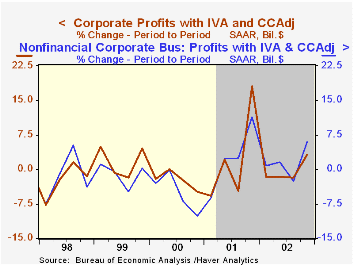
Real GDP growth last quarter was unrevised, as expected. The revisions largely reflected technical adjustments following the release of the 4Q Current Account data.
Corporate profits for 4Q02 were reported for the first time and they were generally firm. Profits with IVA and CCA rose 3.3% (-1.9% y/y), the first quarterly gain in a year. Profits for nonfinancial corporate business, derived from the income side of the NIPA, rose 6.0% (5.7% y/y).
Inflation was revised up slightly. The quarterly growth rate was the strongest since 3Q01.
Analysis from the St. Louis Federal Reserve Bank titled "Identifying Business Cycle Turning Points in Real Time" can be found here.
| Chained '96 $, % AR | 4Q'02 (Final) | 4Q'02 (Prelim.) | 3Q'02 (Final) | Y/Y | 2002 | 2001 | 2000 |
|---|---|---|---|---|---|---|---|
| GDP | 1.4% | 1.4% | 4.0% | 2.9% | 2.4% | 0.3% | 3.8% |
| Inventory Effect | 0.3% | 0.2% | 0.6% | 1.2% | 0.6% | -1.2% | 0.1% |
| Final Sales | 1.1% | 1.2% | 3.4% | 1.7% | 1.8% | 1.5% | 3.7% |
| Trade Effect | -1.6% | -1.4% | -0.0% | -0.8% | -0.5% | -0.1% | -0.6% |
| Domestic Final Demand | 2.6% | 2.5% | 3.3% | 2.5% | 2.4% | 1.6% | 4.3% |
| Chained GDP Price Deflator | 1.8% | 1.6% | 1.0% | 1.3% | 1.1% | 2.4% | 2.1% |
by Tom Moeller March 27, 2003
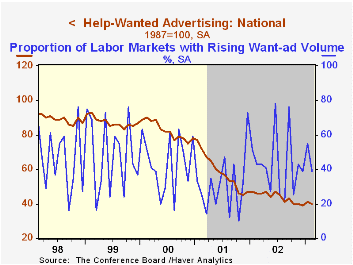
The Conference Board's National Index of Help-Wanted Advertising fell slightly in February and January's figure was revised up. For the last several months the help wanted index has remained near the lowest levels since 1964.
The proportion of labor markets with rising want-ad volume dropped sharply to 39% from an upwardly revised 55% in January.
Want-ad volumes fell or remained low in most of the country except the Mountain region where improvement in Salt Lake City was notable.
During the last ten years there has been a 69% correlation between the level of help-wanted advertising and the monthly change in nonfarm payrolls. The correlation with the y/y change in employment has been 92%.
All of the figures mentioned above are seasonally adjusted.
| Conference Board | Feb | Jan | Feb '02 |
|---|---|---|---|
| National Help Wanted Index | 40 | 41 | 46 |
Tom Moeller
AuthorMore in Author Profile »Prior to joining Haver Analytics in 2000, Mr. Moeller worked as the Economist at Chancellor Capital Management from 1985 to 1999. There, he developed comprehensive economic forecasts and interpreted economic data for equity and fixed income portfolio managers. Also at Chancellor, Mr. Moeller worked as an equity analyst and was responsible for researching and rating companies in the economically sensitive automobile and housing industries for investment in Chancellor’s equity portfolio. Prior to joining Chancellor, Mr. Moeller was an Economist at Citibank from 1979 to 1984. He also analyzed pricing behavior in the metals industry for the Council on Wage and Price Stability in Washington, D.C. In 1999, Mr. Moeller received the award for most accurate forecast from the Forecasters' Club of New York. From 1990 to 1992 he was President of the New York Association for Business Economists. Mr. Moeller earned an M.B.A. in Finance from Fordham University, where he graduated in 1987. He holds a Bachelor of Arts in Economics from George Washington University.



